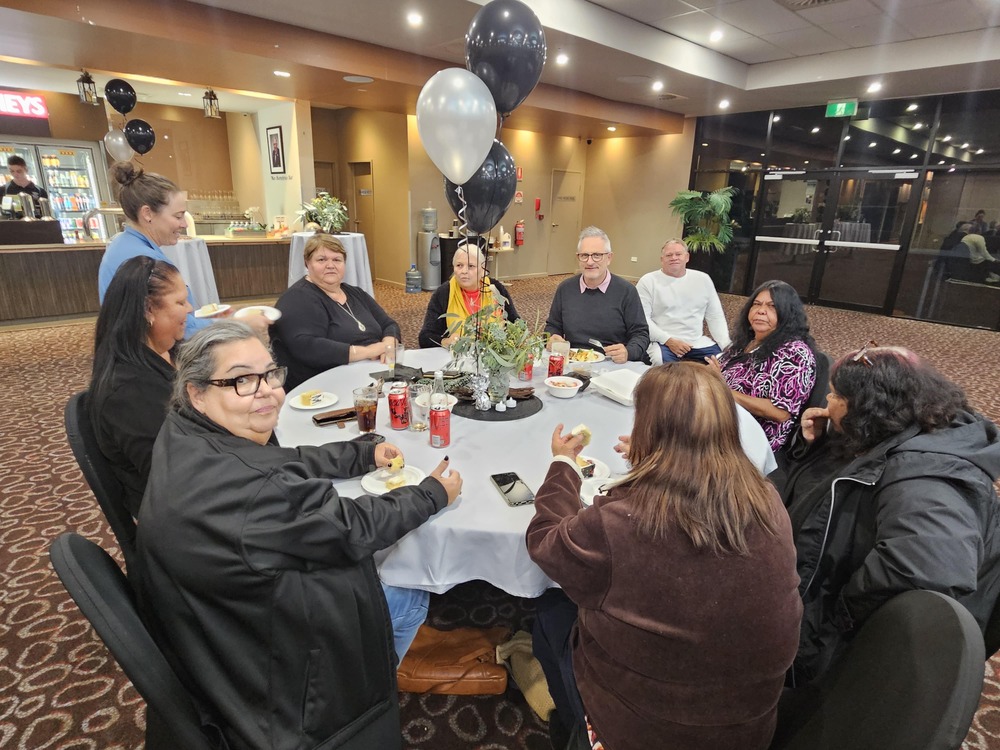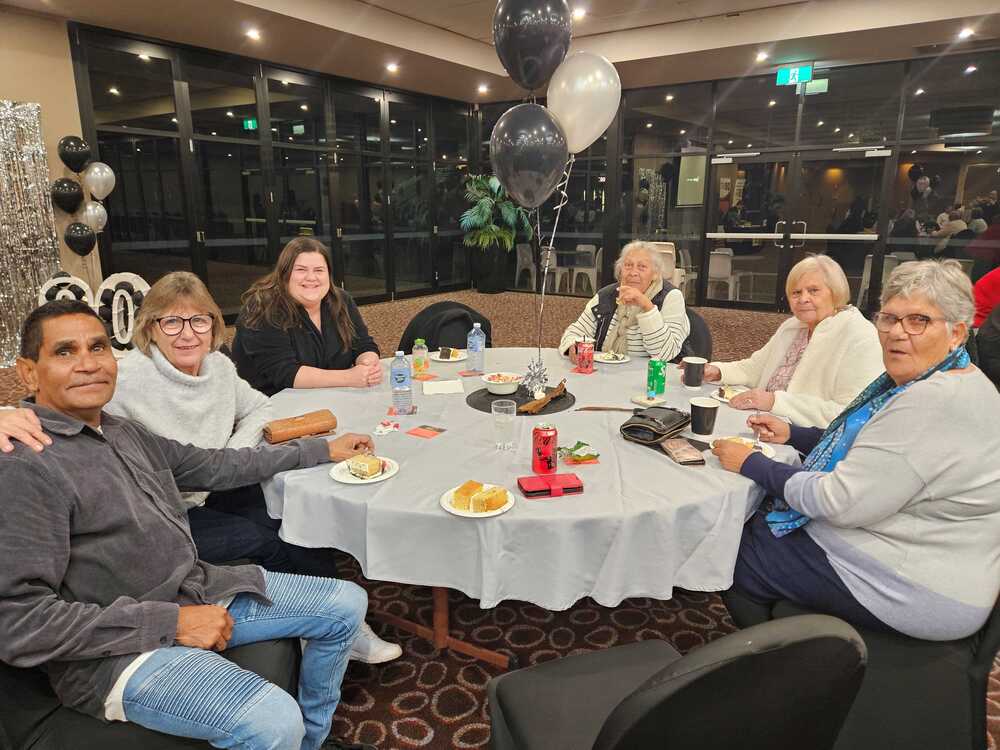Murdi Paaki Regional Assembly celebrates 20 years
Lily Plass
01 July 2024, 7:39 AM
 William 'Smiley' Johnstone RAHLA Programme Director, Grace Gordon MPRA Independent Chairperson, Fay Johnstone Ivanhoe CWP Chairperson, and Olive 'Pam' Handy Wentworth/Dareton CWP Chairperson
William 'Smiley' Johnstone RAHLA Programme Director, Grace Gordon MPRA Independent Chairperson, Fay Johnstone Ivanhoe CWP Chairperson, and Olive 'Pam' Handy Wentworth/Dareton CWP ChairpersonThe Murdi Paaki Regional Assembly (MPRA) celebrated its 20-year milestone on Thursday 20 June at the Cobar Bowling & Golf Club.
Forty-five people from various Community Working Parties (CWP), as well as members of the government, community, shire, and various NGOs gathered for the event.
“We had Bourke Mayor Barry Hollman, Cobar Shire General Manager Peter Vlatko, the Deputy Secretary for Regional Health Luke Sloane and representatives from the University of New England among others,” a Murdi Paaki spokesperson said.
The Murdi Paaki Regional Assembly was established in 2004 to facilitate collaboration between the region’s Aboriginal communities through its Community Working Parties (CWPs).
Their role has grown to become a representative regional voice participating in decision-making and assisting in implementing government policy.
The peak body encompasses 16 communities, including Bourke, Brewarrina, Broken Hill, Cobar, Collarenebri, Coonamble, Enngonia, Goodooga, Gulargambone, Ivanhoe, Lightning Ridge, Menindee, Walgett, Weilmoringle, Wentworth/Dareton, Wilcannia.
The assembly delegates and CWP members are not paid for their governance work and their roles in representing the community.

Left to right (seated): Michelle Kelly (Menindee CWP delegate), Catherine Cubby (MPSL TSEP Staff member), Patricia Bates-Canty (Western NSW Local Health District), Grace Gordon (MPRA Independent Chairperson), Andrew Rose (Aboriginal Affairs NSW), Anthony Knight (Weilmoringle CWP Chairperson), Robin Brown (Weilmoringle CWP Secretary), Carmel King (Menindee CWP Members) and Elaine Ohlsen (Ngiyampaa Elder and Traditional Owner). PHOTO: MPRA
The MPRA helps organise projects to benefit the Aboriginal and Torres Strait Islander communities in these areas such as the Regional Aboriginal Housing and Leadership Assembly (RAHLA) which is a partnership between MPRA and the NSW government.
RAHLA helped create the Alternative Energy Project which led to the installation of solar panels on 633 homes across 23 communities and drafted housing and environmental health plans.
As one of their proudest achievements, MPRA listed the Murdi Paaki Services Limited (MPSL) which was created in 2016 to ensure that the different regions have equal access to funding.
"We need organisations like the MPRA to make people accountable for Aboriginal funds that are filtered through our community," Coonamble CWP member Teresa Standford said.
“In a political sphere where change is the only constant, the Murdi Paaki governance model has been a beacon of stability for 20 years,” Grace Gordon, MPRA chair said.
“The Murdi Paaki model has evolved over twenty years into a mature, stable network for governance and representation of First Nations people across large areas of New South Wales.”
The Murdi Paaki Regional Assembly has also built a partnership with the University of New England (UNE) to help Aboriginal people in their area to receive tertiary education through the TRACKS program.

Carl Mason (Collarenebri CWP Chairperson), Sue Jenkins (Collarenebri CWP Secretary), Leia Haskard (NIAA, Engagement Director, Murdi Paaki Region), Denise Hampton (Broken Hill CWP Chairperson), Fay Johnstone (Ivanhoe CWP Chairperson) and Susan Sharp (Goodooga CWP Chairperson). IMAGE: MPRA
TRACKS is a free program that helps Indigenous students who did not complete Year 12 to gain credentials that make it possible for them to enroll in higher education.
Ms Gordan said that in the next 20 years, Murdi Paaki hopes to continue to develop an equal partnership with the government.
“The Assembly is feeling optimistic about the process for recognition and its highly evolved form of leadership, engagement, governance, and strategic development with a more equal partnership with government," Ms Gordon said.



